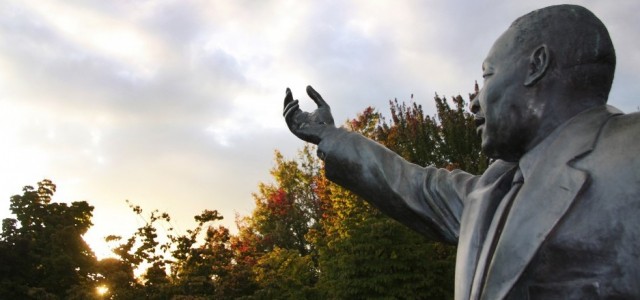ON APRIL 3, 1963, Rev. Dr. Martin Luther King Jr. stood in the pulpit of Mason Temple Church, and with red, tired eyes, he spoke to a throng consisting of dignitaries, reporters, and black families. That night, King’s message was focused on those families. That message, in many ways, was prophetic.
“Like anybody I would like to live a long life,” he said. “Longevity has its place. But I’m not concerned about that now. I just want to do God’s will. And he’s allowed me to go up to the mountain. And I’ve looked over and I’ve seen the promised land.”
And then, in the very next breath, he spoke of life.
“I may not get there with you,” King said. “But I want you to know tonight that we, as a people, will get to the promised land. So I’m happy tonight. I’m not worried about anything. I’m not fearing any man. Mine eyes have seen the glory of the coming of the Lord.”
The next day he was shot dead while standing on the balcony of the Lorraine Hotel in Memphis. He was just 39.
Today, largely due to legislation that was enacted in the wake of King’s death, African Americans wield tremendous political power. The president is African American, as are the mayors of numerous major cities, including Philadelphia. The black middle class is larger than it’s ever been, and there are more black college graduates than at any time in American history. More than a quarter of African Americans live in poverty according to Census estimates, the black unemployment rate is consistently twice that of whites according to Pew, and a report by the Sentencing Project estimated that one in three black men born today will go to prison in his lifetime.
So here is the question:
Though King’s “I have a dream speech,” and the prophetic words he spoke the night before he died were mesmerizing, have we, as a people, arrived at King’s Promised Land? What’s your opinion?
(Featured photo: Martin Luther King Statue at sunrise. © Can Stock Photo Inc.)








